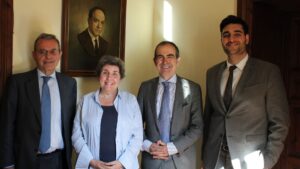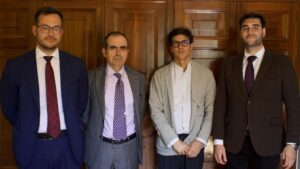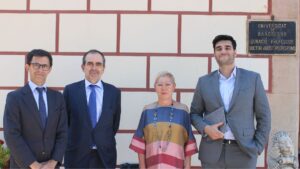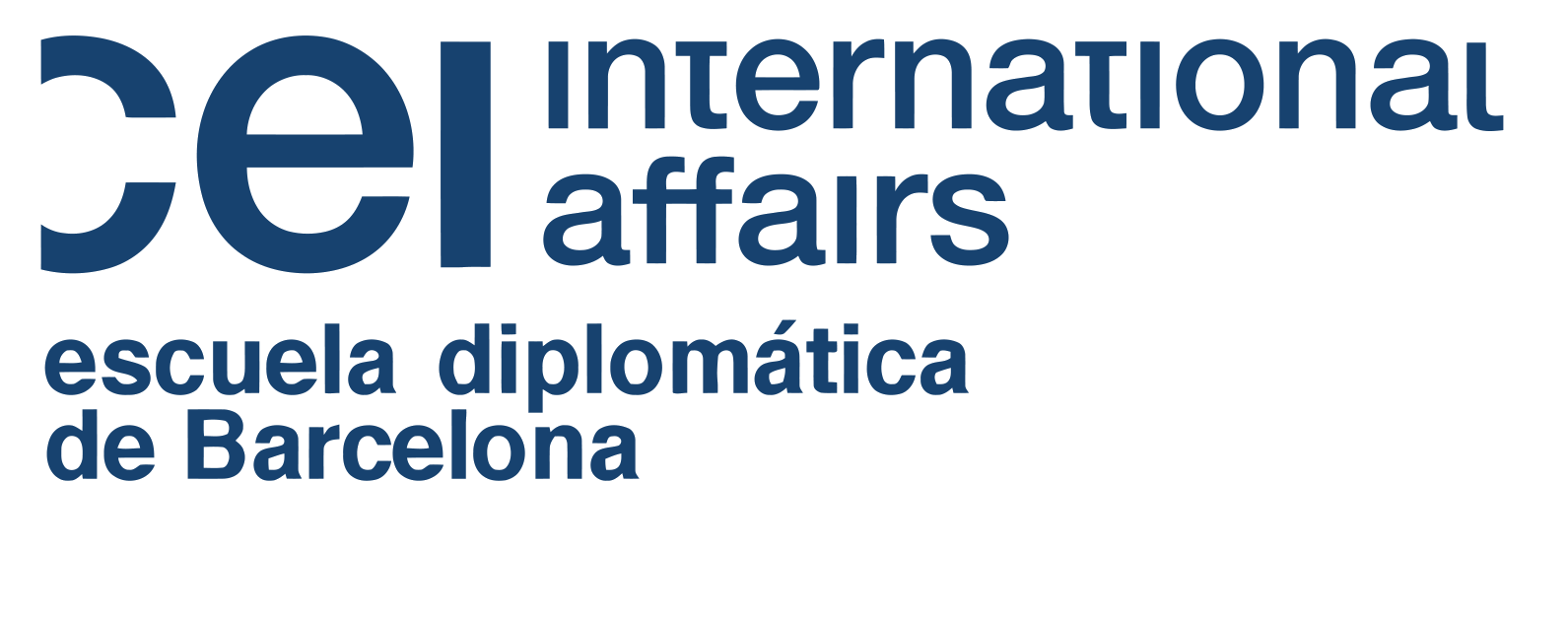Course on Current Spanish Foreign Policy
On 29 April, 30 April and 20 May, the 23rd edition of the course on Current Spanish Foreign Policy, organised by CEI International Affairs together with the Escola Diplomàtica, was held.
The sessions addressed the opportunities, but also the growing tensions and uncertainties of the future of the European Union’s trade relations with Mercosur, the United States and Asia, from the perspective of Spain’s economic interests.
The course, offered both on-site and online, has had a round-table format with a final round for questions from the audience. In addition, each session ended with a coffee break in the gardens of the CEI so that those attending could talk to the speakers.
The first round table was entitled ‘The future of Spain and the European Union’s trade relations with the United States during the second Trump administration’, an opportunity to debate the current uncertainty in the European Union after the tariffs imposed by the Trump administration.
Dr. Patrícia García-Duran Huet, Associate Professor in the Department of Economic History, Institutions, Politics and World Economy at the University of Barcelona, and Associate Researcher at the Barcelona Center for International Affairs (CIDOB), explained what Trump’s real intentions are in the global context of the Iranian war. On his side, Mr. Ricardo Sánchez-Blanco Codorniu, Deputy Director General and EU Trade Issues at the Secretariat of State of the European Union (SEUE), explained the role of the Union in three plans: the diplomatic one, the countermeasures to recover frozen aranzels and the promotion of strategic autonomy.

To conclude this first session, the high degree of interdependence of the European Union with respect to the United States and the future negotiations between the two, as well as the role of geo-economics in assessing the relationship between trade and security and defence, were presented.
The second session of the course, ‘The future of Spain and the European Union’s trade relations with Asia’, addressed the asymmetric relationship between the EU and China, with trade deficits and technological dependence.
The discussion was led by Dr. Gastón Médici, professor at CEI and coordinator of the course, and included the participation of Mr. Alejandro Salesa, Deputy Director General of Bilateral Economic Relations and Economic Diplomacy, and Pablo Pareja, Senior Lecturer in International Relations at the Pompeu Fabra University.

Finally, the last session of the course was used to analyse Spain’s role in the relaunching of trade relations between the European Union and Latin America, especially with MERCOSUR. We have had the participation of José Luis García Galán, Deputy Director General for MERCOSUR of the MAEC, and Dr. Anna Ayuso, Senior Researcher at CIDOB, who have highlighted the strategic importance of Latin America in the context of the trade war between the USA and China, the global regulatory role of the EU and the strengthening of ties with CELAC as a way to a renewed bi-regional cooperation.

